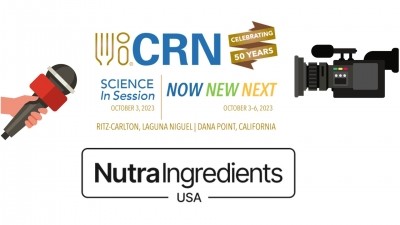FTC 'clarifies' claims substantiation of Health Products Compliance Guidance

The guidance, which was published at the end of 2022, updates the Dietary Supplements: An Advertising Guide for Industry, issued in 1998. It applies to all categories of products making health-related claims, including medical devices, OTC drugs, and dietary supplements.
Towards the end of the document, FTC discusses claims substantiation, including language that appears to state that for any kind of health-related claim, FTC requires at least one randomized controlled trial (RCT).
However, speaking at the Consumer Health Products Association (CHPA) Regulatory, Scientific, & Quality (RSQ) this week in Bethesda, MD, Christine DeLorme, Esq. from the FTC’s Division of Advertising Practices, told attendees: “FTC is not suing anyone for making structure/function claims in isolation.
“We’re an agency that has to prioritize,” she said. “We’re looking at the most serious health claims. Does this mean I have to have RCTs for my structure-function claims? There are certainly cases where you don’t need RCTs. For the serious cases, experts would state that you need RCTs, and those RCTs should be statistically and clinically significant.”
When asked for clarification on the statements, a spokesperson for the FTC told NutraIngredients-USA: “As Ms. DeLorme emphasized during her presentation, the FTC has focused its resources and enforcement efforts on health claims involving serious medical conditions and diseases.
“When dealing with these types of claims, it is the FTC’s experience that scientific experts require at least one RCT as substantiation. The statement in the Compliance Guidance that substantiation of health claims requires RCTs '[a]s a general matter' includes a footnote citing numerous FTC cases where the RCT standard has been applied," said the spokesperson.
“There may be other types of health-related claims – such as specific structure/function claims – that might not require RCTs, although of course it depends on the express and implied claims at issue and the opinion of experts in the relevant field.
“Advertisers should bear in mind that, as stated in the Compliance Guidance, a structure/function claim may convey an implied disease claim depending on the context of the ad.”
DeLorme made similar statements earlier this summer at the 11th Annual Legal, Regulatory and Compliance Forum on Dietary Supplements, co-hosted by the American Conference Institute (ACI) and the Council for Responsible Nutrition (CRN). Megan Olsen, CRN’s SVP & General Counsel, told us that the association’s newly filed Citizen Petition to clarify certain aspects of Health Products Compliance Guidance seeks to initiate a conversation with FTC, with the goal of getting the commission to review its guidance and make necessary revisions. The text of CRN's petition can be found HERE.
The FTC clarification appeared at odds with the way in which many in the room at the CHPA RSQ had interpreted the language in the guidance. Scott Bass, a partner at Sidley Austin and a speaker in the same session at the CHPA RSQ, remarked: “In 1998, the stance for dietary supplements was that if it’s good science, it’s good science. [That included] animal data, data from abroad, data from broad-based studies.”
The trick, he said, was to have a good file that shows you tried hard.
“But now, this new guidance, everything requires a clinical trial. Although that may not be the case.”
Eco claims
DeLorme also reminded attendees that any claims relating to environmental impact, such as claims around a carbon footprint or water usage during the manufacturing of the product, are covered by the Green Guides on Environmental Marketing Claims. These were first issued in 1992 and then revised in 1996, 1998, and 2012. At the end of 2022, the commission announced a call for public comment on potential updates and changes to the Green Guides.
Raqiyyah Pippins, Esq., Partner, Arnold & Porter, noted that alleged deceptive eco-friendly claims and “greenwashing” were part of an action against Kohl’s and Walmart that resulted in a $5.5 million settlement in 2022.








